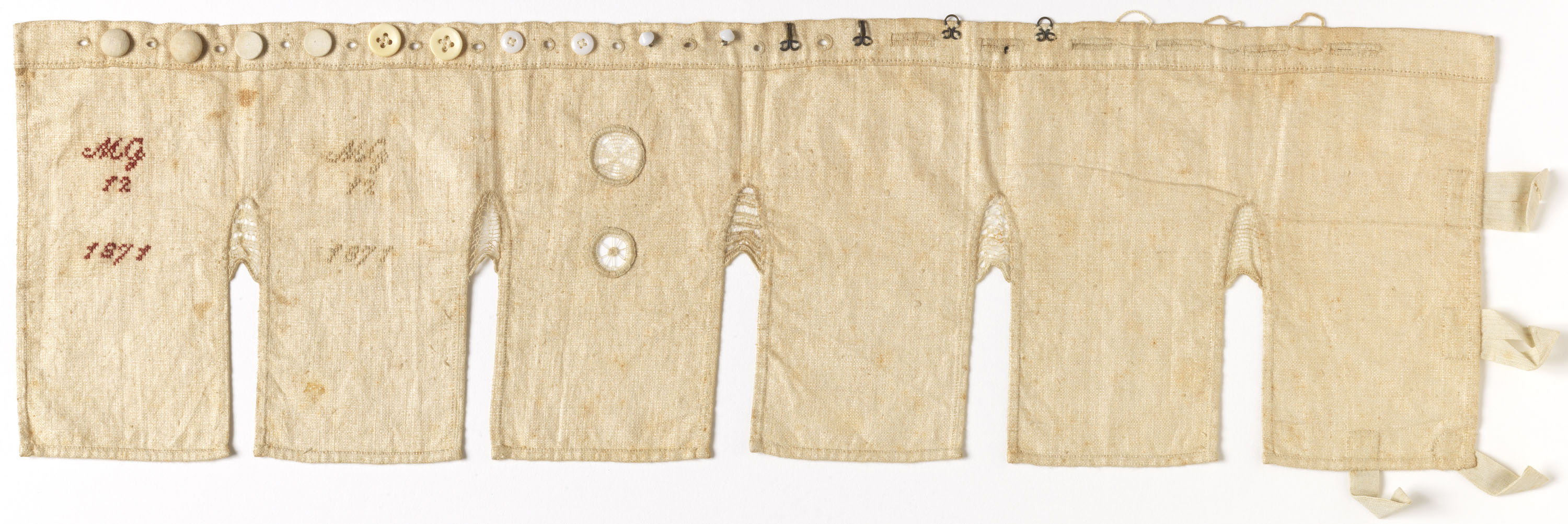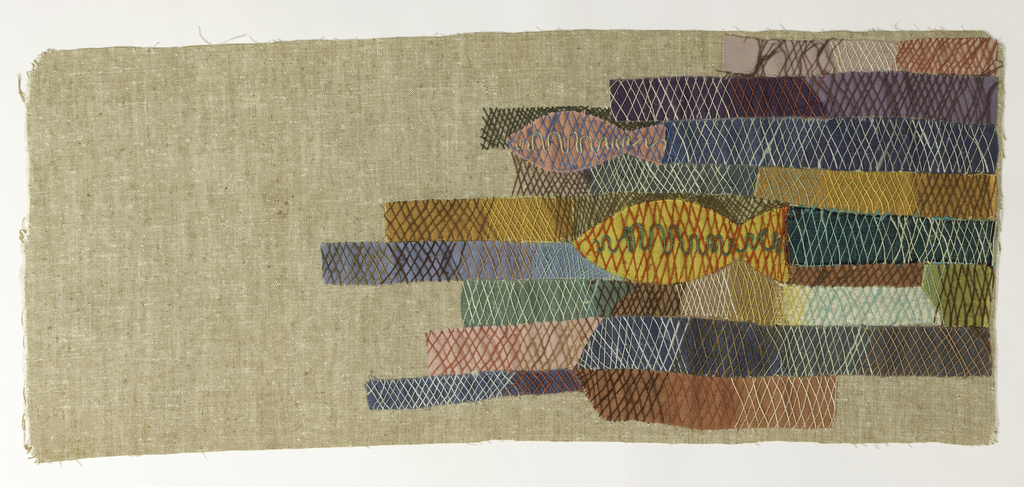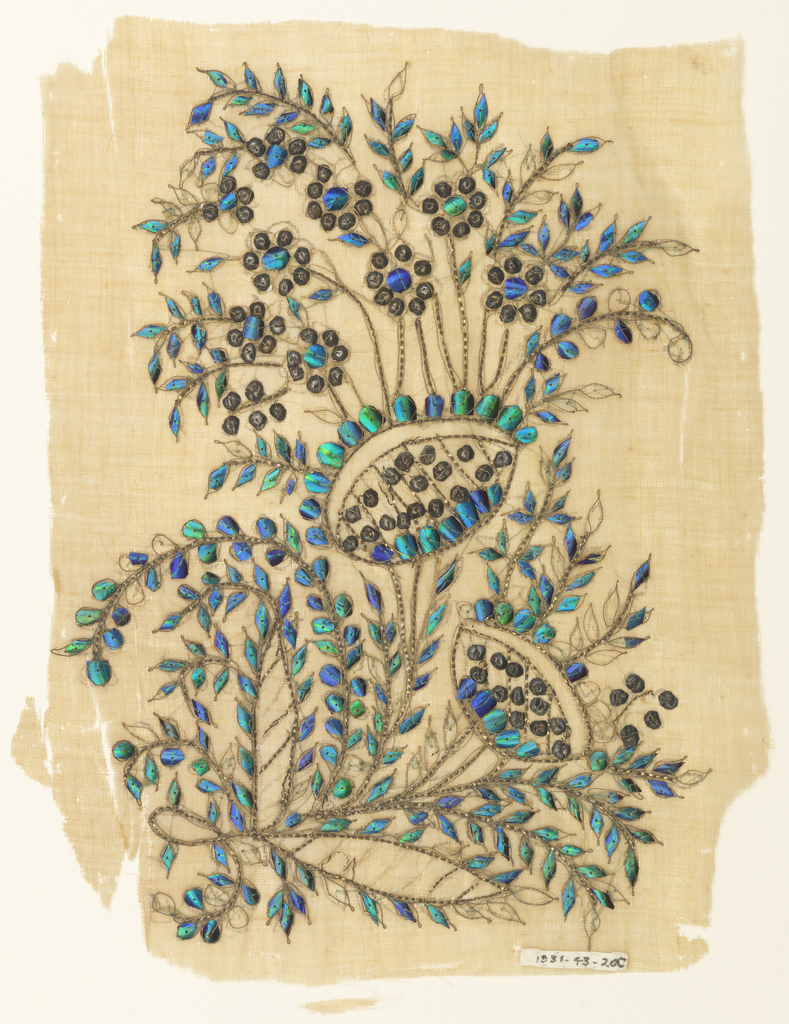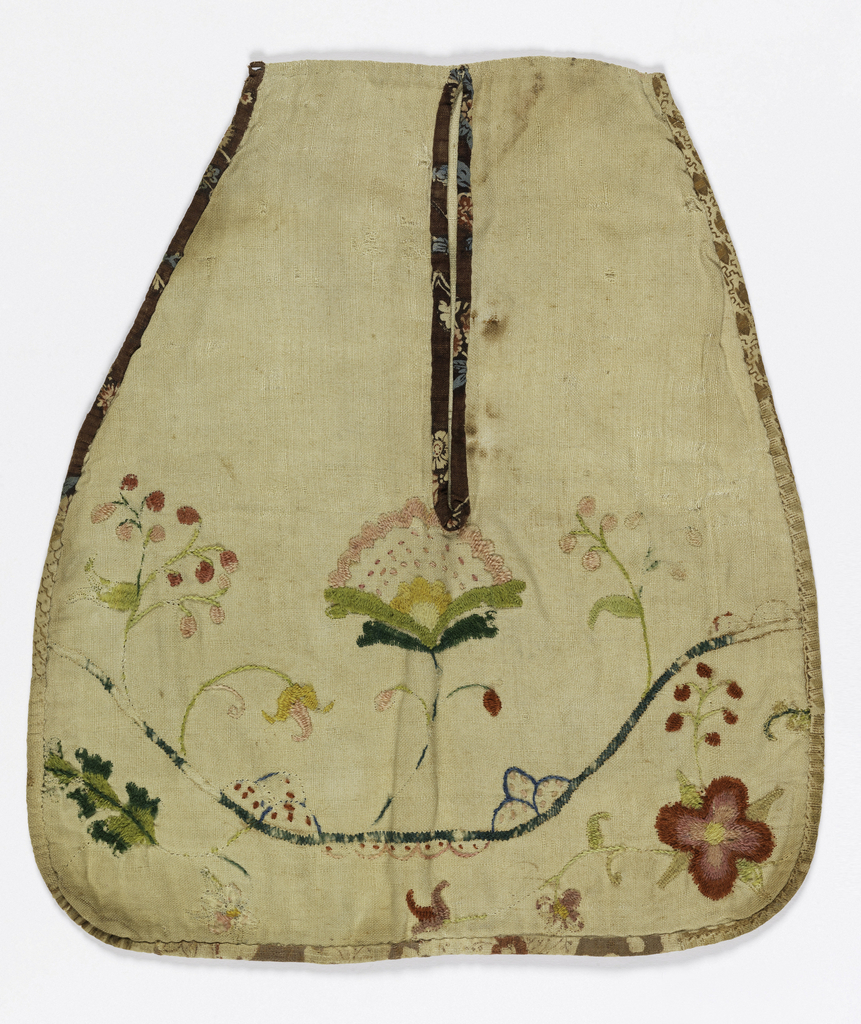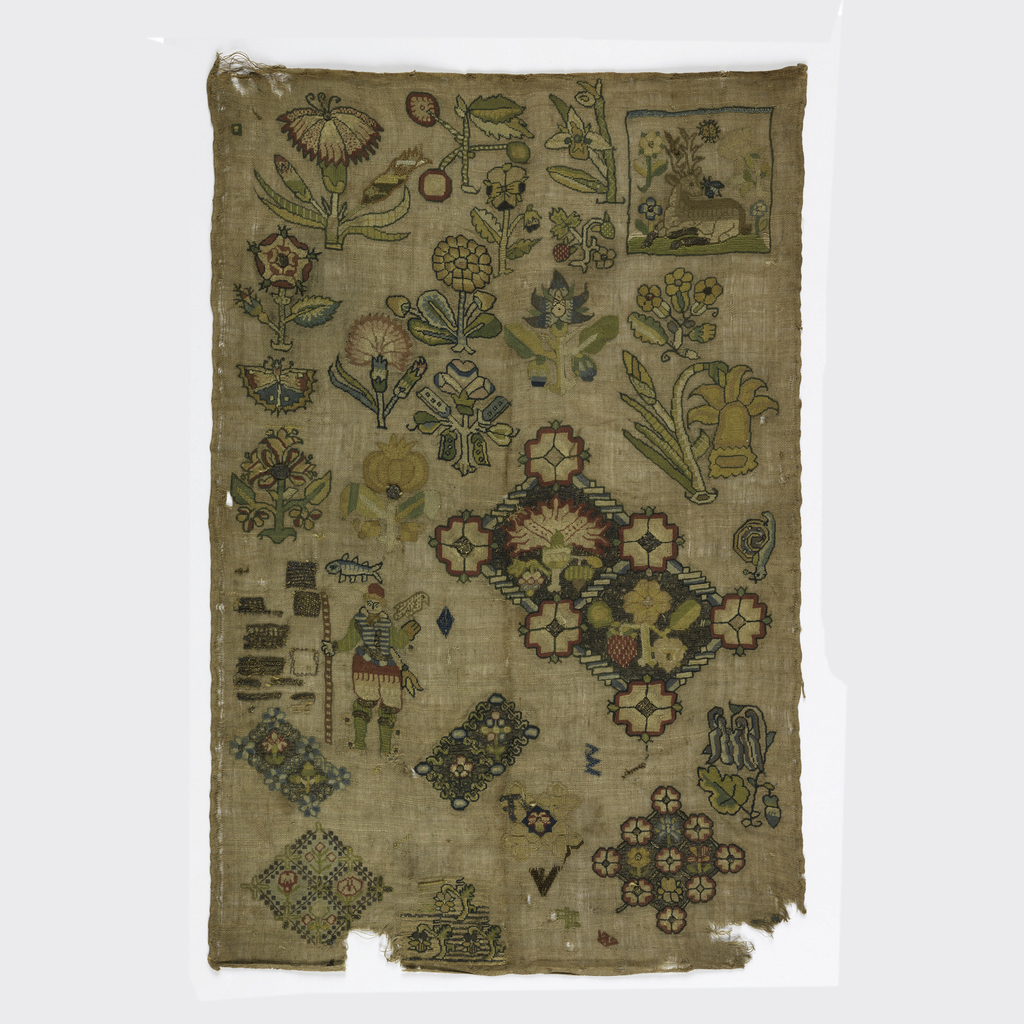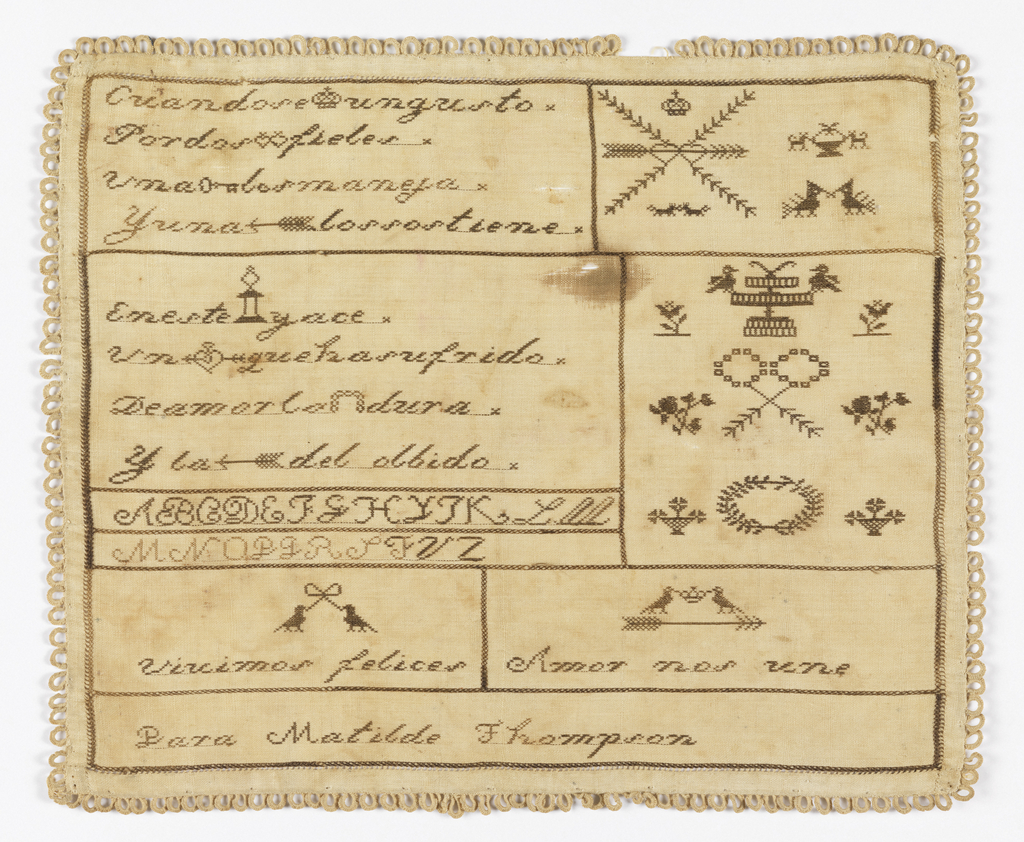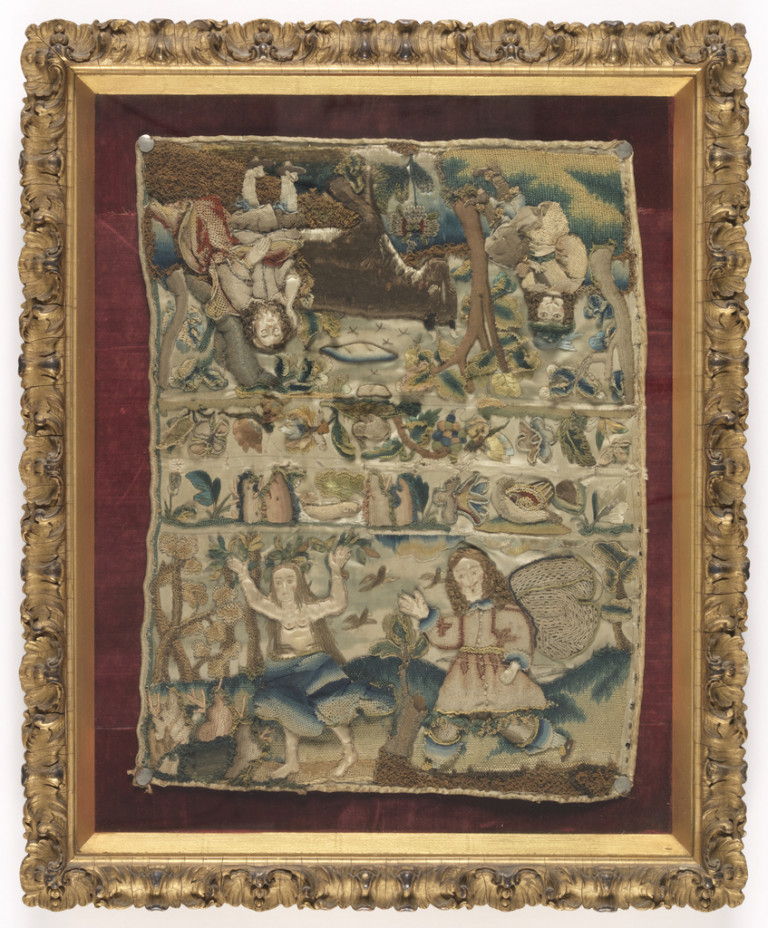Decorative embroidered samplers were made by daughters of the well-to-do for display in their homes, and were symbols of gentility as much as of skill. For daughters of the poor, instruction in needlework, while equally important, often had a more practical purpose: to prepare them for work as domestic servants. Going into service for a...
“It’s not how you do a stitch, it’s what you do with it” was Mariska Karasz’s exhortation to would-be embroiderers. Serving as guest needlework editor for House Beautiful magazine from 1951–53, the artist wrote needlework lessons with suggestions for adding unique decorative embroidery to bedding, table linens and curtains. But her instruction was never prescriptive;...
From the archives, an Object of the Day post on an example of iridescent design from the collection.
Before the mid-19th century, pockets were not sewn into women’s clothing, but were an accessory. Pockets, usually worn in pairs, were tied around the waist between a woman’s under-petticoat and her petticoat or skirt. Openings in the side seams of these voluminous skirts provided a discreet way for her to access their contents. Pockets were...
This spot sampler is one of a genre of 17th century samplers that truly embodied the name. Most samplers of the period had a structure, pleasant in appearance, which incorporated pattern bands, phrases, and information about the maker such as her name and the date she completed the work. However, spot samplers like this one...
a sampler might say “noli timere” be not afraid. but this sampler says “love unites us” in the end, we are all alone. but somewhere we also learn the elusive truth that there is love. love of life and beauty, knowledge and kindness. love unites us is not a bad thing to read on...
My first introduction to stumpwork occurred as a young girl, when my Scottish-American grandmother taught me how to embroider samplers. We gradually advanced to creating pictures in raised embroidery using padding, wire, and different types of dimensional embroidery stitches. Completed stumpwork pieces in major museums include purses and bags, framed pictures, and panels used on...
See how embroidery is made by hand in this short video. Nguyen Le of knitknit demonstrates the basics, including satin stitch, chain stitch and french knot technique. She also adds a backing fabric to the project as an extra optional step. This piece took about 3 hours total. About this series: Design Dictionary is a...
A custom T-shirt design transmitted to the machine via Twitter Pa++ern is a project that uses Twitter to source unique t-shirt designs. Created by Daito Manabe and Motoi Ishibashi, the system translates short bits of custom code received over Twitter into an embroidered shirt pattern. According to the designers, their project is an “esoteric language...
